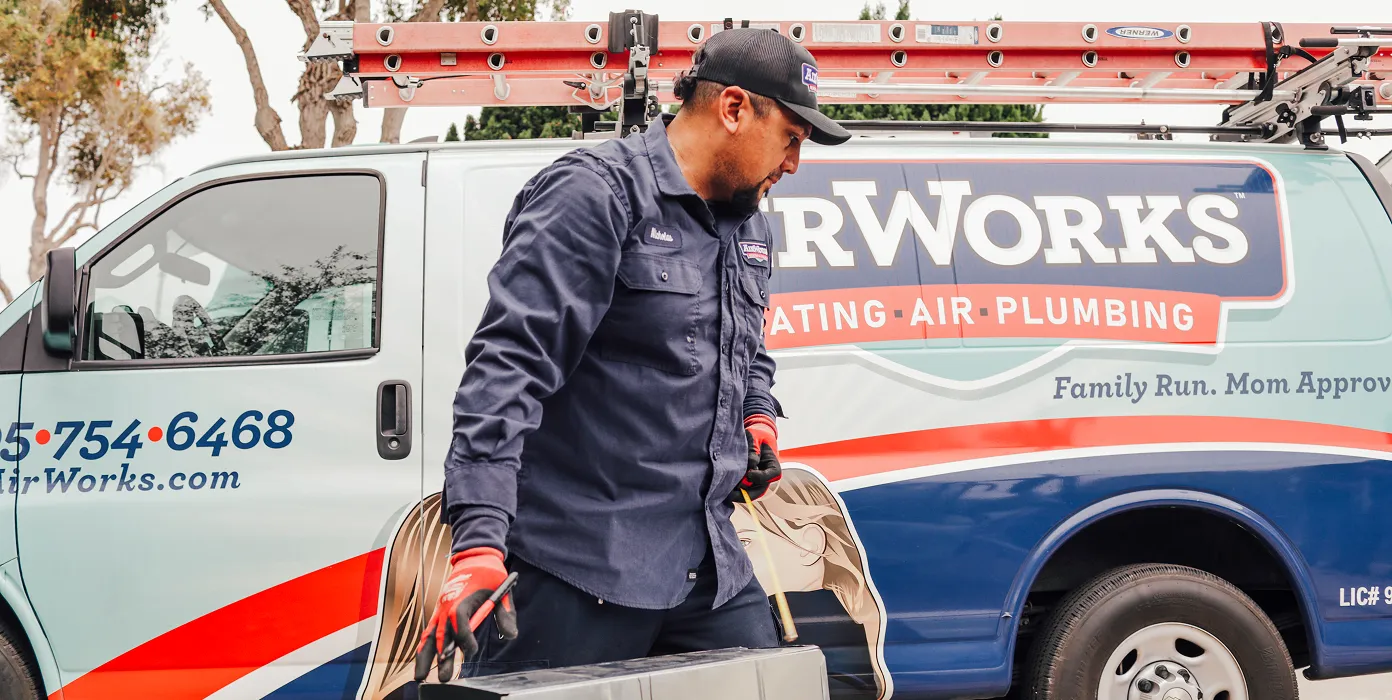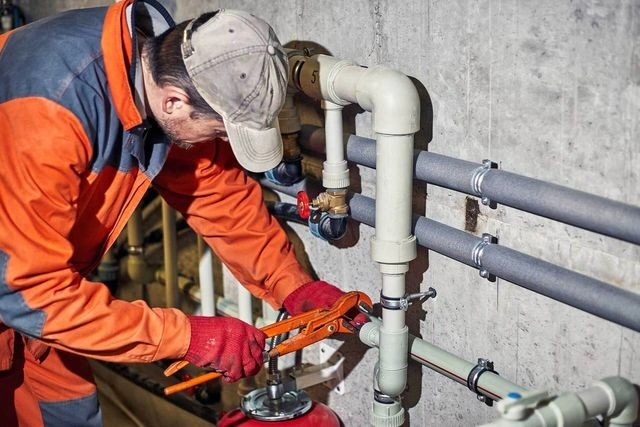Commercial Plumbing Installation in Newbury Park, CA
Serving Ventura & Sacramento Counties

Commercial Plumbing Installation in Newbury Park, CA
A properly designed and installed commercial plumbing system is foundational to safe, efficient, and code-compliant operations for offices, retail centers, restaurants, medical buildings, HOA properties, and light industrial sites in Newbury Park, CA. Commercial plumbing installation projects that miss code requirements, clash with construction schedules, or use the wrong materials can create costly delays, increase liability, and reduce tenant satisfaction. This page explains the typical scope, common challenges, installation process, and long-term maintenance priorities for commercial plumbing installation in Newbury Park so building owners and project managers can make informed decisions.
Common commercial plumbing projects in Newbury Park
Commercial plumbing installation in Newbury Park covers a wide range of system types and building needs. Typical installations include:
- New plumbing system design and plumbing plans for tenant improvements, new construction, and building expansions
- Rough-in and final installation of water supply piping, sanitary drains, storm drains, and venting systems
- Commercial fixture installation: toilets, urinals, lavatories, mop sinks, service sinks, and ADA-compliant fixtures
- Commercial water heater systems: high-capacity tank, condensing, and tankless commercial units with seismic strapping
- Grease interceptors and kitchen plumbing for restaurants and food service
- Backflow prevention and cross-connection control devices for potable water protection
- Gas lines for commercial appliances and water heaters
- Roof drainage, downspouts, and stormwater detention where required
- Utility coordination for metering, submeters, and irrigation systems tuned for drought restrictions

Local factors that influence installations in Newbury Park
Newbury Park sits in Ventura County with a Mediterranean climate, seasonal drought restrictions, and proximity to coastal air that can accelerate corrosion on exposed materials. For commercial properties this means:
- Water efficiency is a priority: installations must support low-flow fixtures, efficient water heaters, and possibly submeters to manage use under local regulations.
- Seismic considerations: water heaters, piping, and tanks require seismic restraints and bracing in accordance with California code practices.
- Corrosion resistance: salt air exposure for properties closer to the coast makes material selection and protective coatings important for long-term durability.
Code compliance and permitting considerations
Commercial plumbing installation in Newbury Park must meet California Plumbing Code, Title 24 water-efficiency standards, CALGreen requirements, and local Ventura County building department rules. Key compliance elements include:
- Proper sizing and slope of sanitary drains and venting to prevent sewer odors and backups
- Installation and certification of backflow preventers to protect the public water supply
- ADA and fixture-count compliance for occupancy load and use type
- Energy and water efficiency compliance for water heaters and fixtures
- Permit acquisition, scheduled inspections, and final sign-offs with municipal authorities
Failing to meet these requirements can result in rework, inspection failures, or delayed occupancy. Accurate documentation, as-built drawings, and test records are essential for passing inspections and for future facility maintenance.
Commercial plumbing installation process
A reliable commercial plumbing installation follows a disciplined, transparent process that minimizes surprises and coordinates with construction schedules:
- Project intake and site survey - review architectural plans, existing utilities, site constraints, and occupancy needs.
- System design and load calculations - create plumbing plans with pipe sizing, fixture schedules, hot water demand calculations, and equipment layouts.
- Permitting support - prepare permit-ready drawings and coordinate submittals with local building officials.
- Material selection - choose piping (copper, CPVC, stainless steel, cast iron, or engineered plastics), valves, fixtures, and commercial-grade equipment suited to the site and code.
- Phased construction coordination - rough-in piping to meet electrical and mechanical trades’ schedules, followed by fixture installation and equipment set.
- Pressure and leak testing - water and gas tests, CCTV or smoke testing for drain lines when required, and backflow testing as part of commissioning.
- Inspections and documentation - provide test certificates, as-built drawings, O&M manuals, and warranties for owner records.
- Commissioning and training - verify operating parameters, temperature controls, recirculation loops where necessary, and hand over operation guidance to facility staff.
Strong coordination with general contractors, electrical and HVAC teams, and property managers is critical to stay on schedule and prevent rework during finish phases.
Materials and equipment best practices
Choosing the right materials and equipment extends system life and reduces operational costs:
- Use corrosion-resistant piping and protective coatings in coastal or high-moisture environments.
- Select commercial-grade water heaters sized to peak demand and consider condensing or tankless solutions for improved efficiency and reduced footprint.
- Specify high-efficiency plumbing fixtures to meet Title 24 and local water conservation goals.
- Install accessible isolation valves, cleanouts, and serviceable grease interceptors to simplify maintenance and reduce downtime.
Problems a professional installation prevents
Common issues that follow poor installations include persistent leaks, low water pressure, backflow events, grease blockages, premature equipment failure, and failed inspections. In Newbury Park, improper attention to water efficiency or seismic restraint details can also result in code violations and increased liability. A properly engineered installation reduces these risks and lowers lifecycle costs.
Testing, documentation, and handover
Thorough testing and clear documentation distinguish a quality commercial plumbing installation:
- Hydrostatic and air pressure tests for piping, and gas leak tests where applicable
- Backflow prevention testing and certification records
- Final inspection sign-offs and permit closure documentation
- As-built drawings and operation and maintenance manuals, including recommended service intervals
- Training for building engineers or maintenance staff on system operation, safety, and simple troubleshooting
Maintenance advice for long-term reliability
After installation, an ongoing maintenance plan preserves system performance: schedule regular backflow retests, annual water heater inspections and flushing, routine grease interceptor service, and seasonal checks of roof drains and stormwater systems. Proactive maintenance reduces emergency repairs and supports tenant comfort and building compliance.
Conclusion
Commercial plumbing installation in Newbury Park, CA requires technical design, code knowledge, careful material selection, and tight coordination with construction schedules to deliver safe, efficient, and durable systems. When projects prioritize code compliance, water efficiency, seismic protection, and thorough testing and documentation, building owners and managers gain reliable operation, fewer surprises at inspection, and lower long-term costs.
Code-Compliant Plumbing Systems Installed For Long-Term Commercial Performance
Need a reliable system built to last? Commercial plumbing installation in Newbury Park, CA requires expert design, proper material selection, and seamless coordination with construction timelines. AirWorks Solutions delivers full-scope installations—from water supply and drainage systems to ADA-compliant fixtures, grease interceptors, gas lines, and seismic-braced water heaters. Every project is tailored to meet California Plumbing Code, Title 24, and local water efficiency standards—backed by detailed documentation, testing, and professional commissioning for safe, efficient operation from day one.
Schedule Your Commercial Plumbing Installation Today For Reliable, Code-Ready Results


